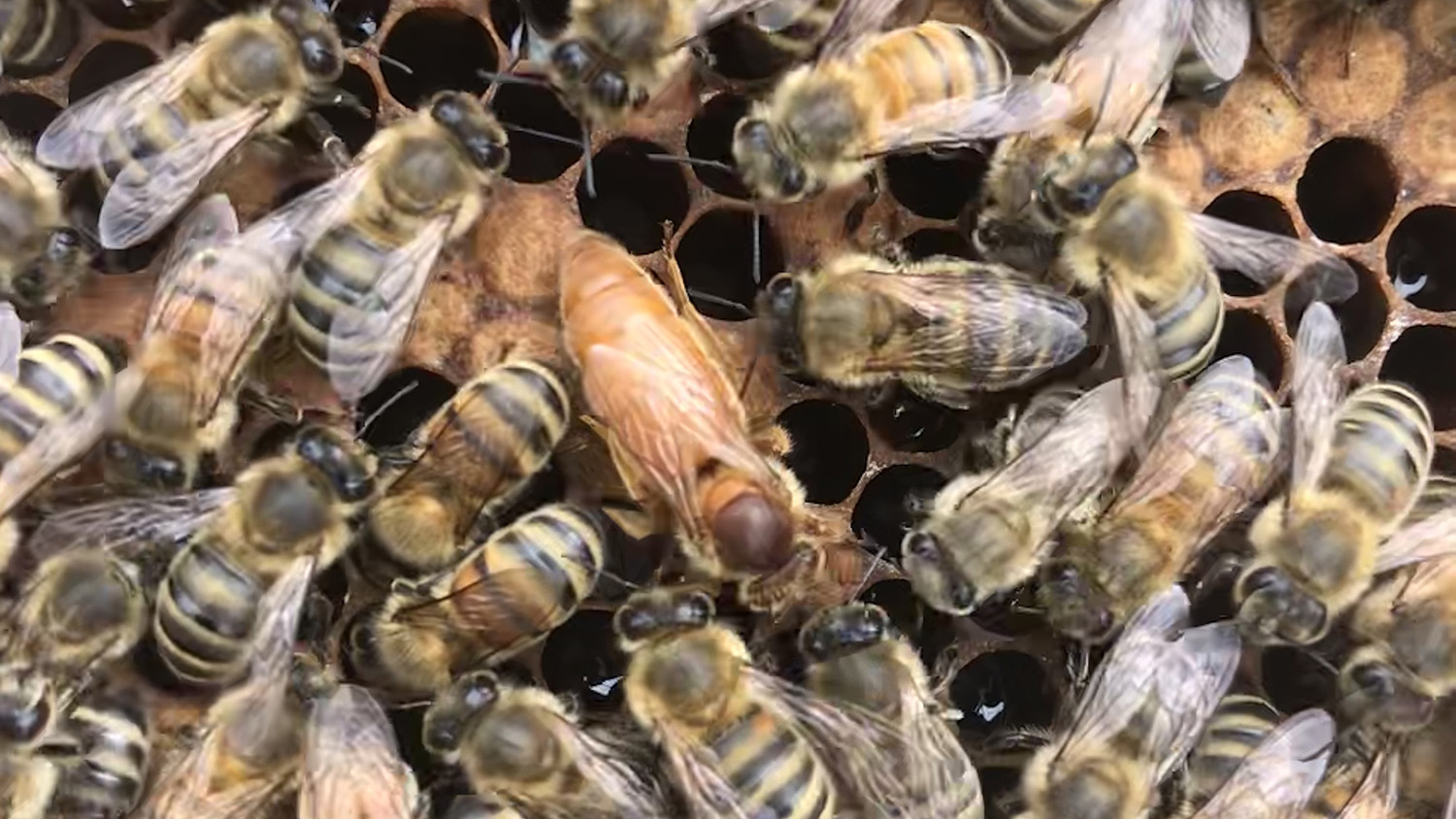Podcast: Queen Bees and Hive Failure


A beehive is only as healthy as its queen. Alison McAfee, a postdoctoral research scholar at NC State, studies queen failure. Her latest research focuses on queen failure due to inability to reproduce using stored sperm.
Once the males have mated with the queen, then she’s the keeper of the sperm. She needs to be able to keep those sperm happy and healthy for a long time.
“There are quite a few ways that the sperm inside a queen can become harmed,” McAfee says. “When a queen becomes stressed by becoming too hot or becoming too cold or being exposed to pesticides, all those things can begin to kill those sperm that she’s keeping. And once that happens, that’s really bad news because she can’t just go and mate again. So her sperm dying is like a permanent change to her ability to fertilize eggs. And that’s a really big problem for beekeepers.”
McAfee hopes to be able to create a method for doing “molecular autopsies” on failed queens, to help beekeepers understand why it happens.
Failed queens look the same no matter what the reason for failure is, most of the time.
“It would be really useful for a beekeeper to be able to, say, send a failed queen to the lab, have me run a series of diagnostic tests on her and then be able to tell them, this queen probably failed because of pesticide stress or she probably failed because she became too hot or something like that,” McAfee says.
“So I think of this as like doing a molecular autopsy on the queen to try to figure out the cause of failure. And then the beekeeper can make more evidence-based decisions for the future in terms of the management of their operation and where they get their queens from – things like that.”
.


